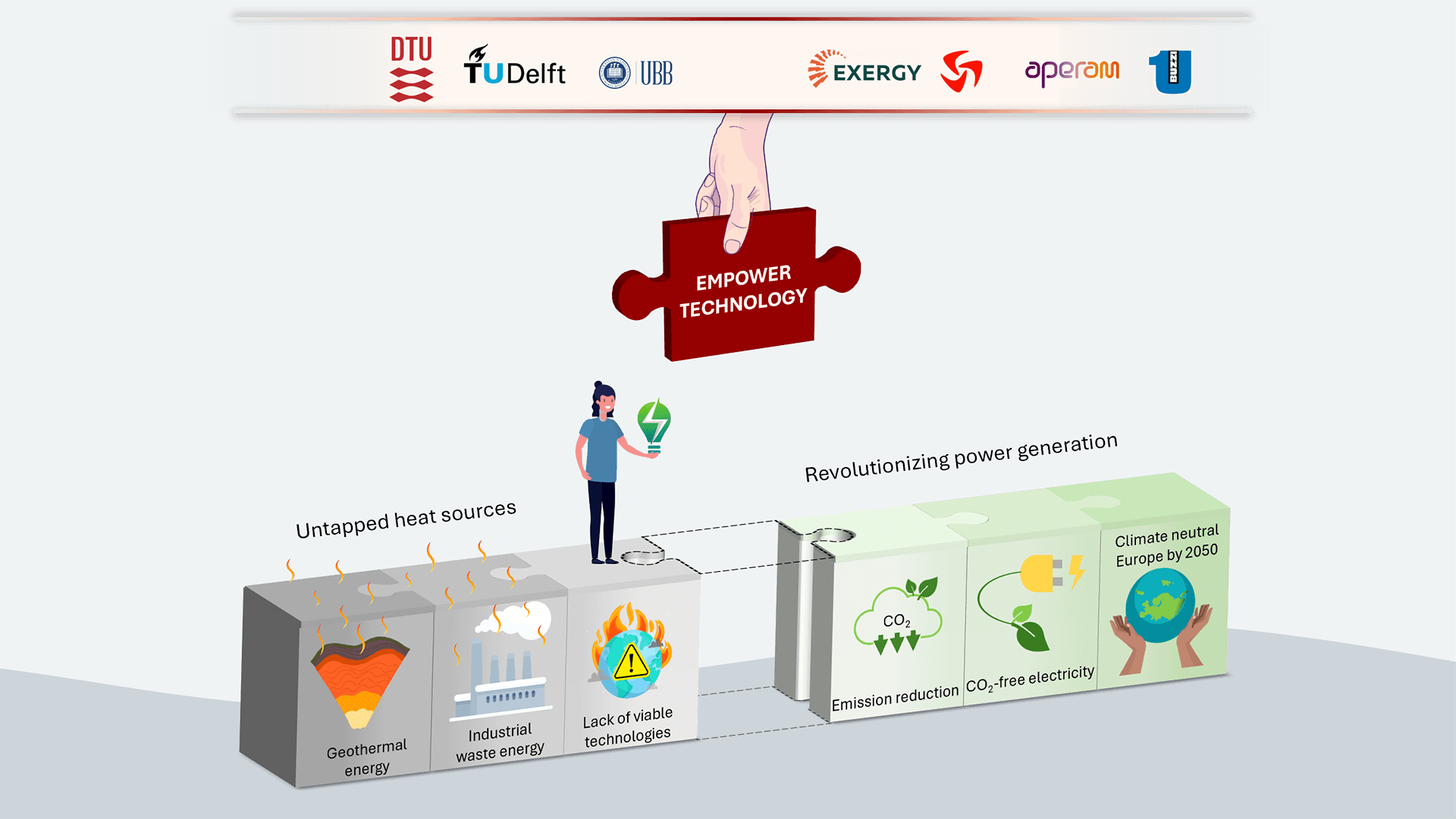About the project

Geothermal energy utilization and industrial waste heat recovery are gaining recognition as valuable contributors to sustainable energy production. While geothermal and waste heat sources above 150 °C are commonly exploited, low-temperature sources below 150 °C, which are more abundant and have even greater potential for power generation, remain largely untapped due to economic and technological constraints. The EMPOWER consortium aims to revolutionize low-temperature energy conversion by developing a new generation of organic Rankine cycle technologies adopting a holistic approach.
Specifically, we will (1) design and analyse next-generation two-phase turbines, exploring a novel reaction configuration, (2) raise the Technology Readiness Level (TRL) of reaction two-phase turbines from TRL 2 to TRL 4 by validating the concept in a novel dedicated experimental facility, (3) incorporate realistic two-phase turbine performance data into the techno-economic analysis and optimization of partial-evaporation organic Rankine cycle systems, (4) conduct a Life Cycle Assessment (LCA) to quantify and minimize the environmental impact of the technology in the context of geothermal energy utilization and waste heat recovery from the European cement and steel industries, and (5) evaluate the social and economic benefits and barriers of deploying this technology and design strategies to exploit the benefits and mitigate the barriers.
The consortium consists of 7 partners (5 beneficiaries and 2 associated partners) – 3 academic partners and 4 industrial partners – from 5 countries. The consortium's composition, complemented by an External Advisory Board with representatives from other EU-funded projects and key stakeholders from targeted industries, ensures a push-pull drive that will maximize progress towards our common objectives. Overall, EMPOWER aims to deliver an emerging, sustainable technology contributing to a cleaner, more energy-efficient future for Europe.